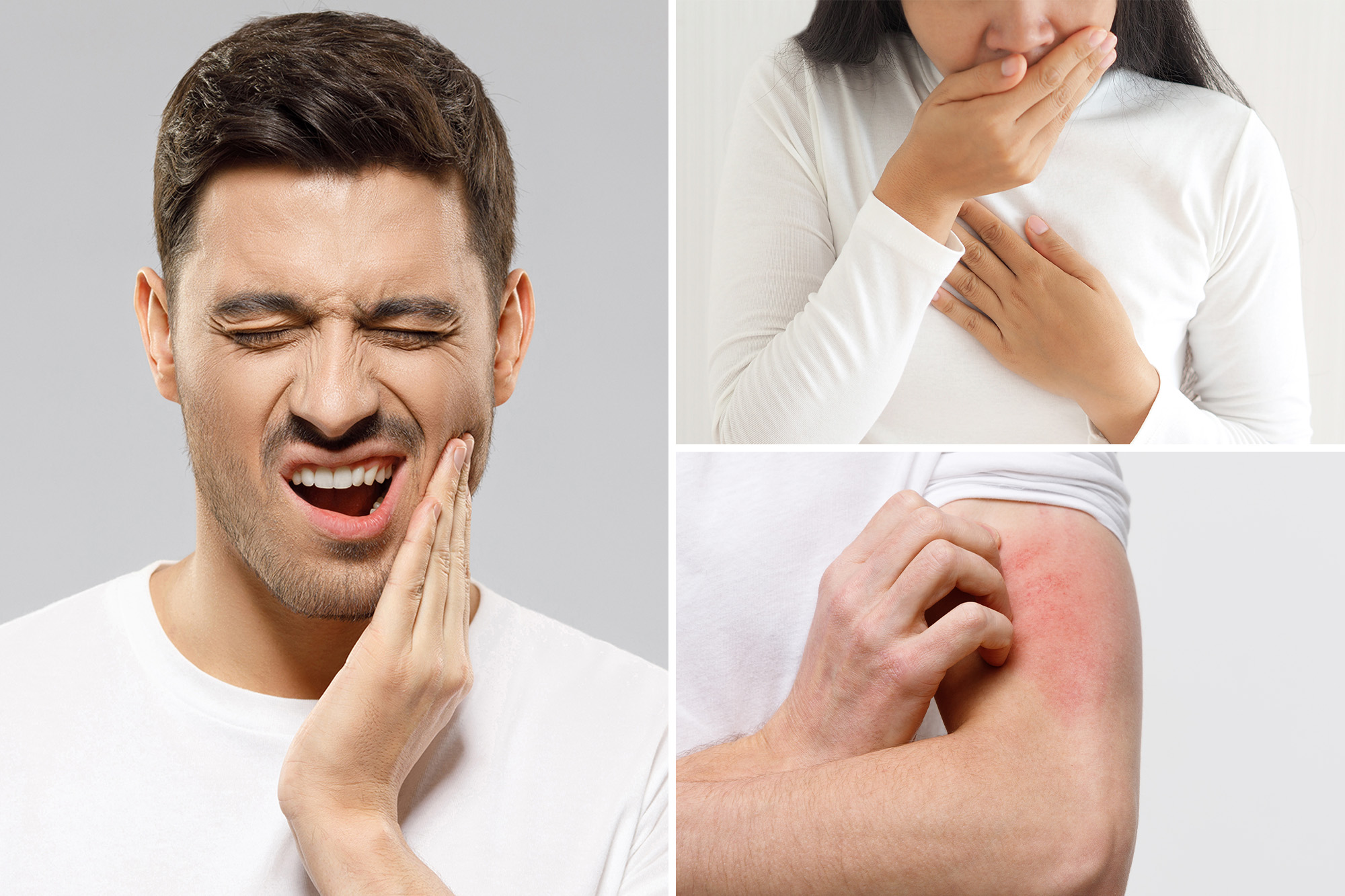Six out of North ten -Americans admit that they ignore symptoms that are not “serious”, according to new research.
A survey of 2,000 adults was evenly divided by generation and gender found that more than half of women said that these symptoms (58%) are likely to be ignored.
The survey explored the breach of knowledge to understand when the symptoms that feel “slight” must be taken more seriously.
The results found that of those who ignore minor symptoms such as eruptions, sleep problems or digestive problems, 43% said that they are not serious.
Men are more likely to ignore minor symptoms because they think they can push them (46% against 38%), while 44% of women say they do not act on these symptoms because they do not want to protrude.
Made by Talker Research for MD Live, the survey found that while the average person experiences pain and pain four times a week, women are more likely to experiment -daily (23%).
Surprisingly, boomer women are the most likely to erase these pains and pains less than other generations (68%).
“Women’s health worries have often been minimized or misunderstood, bringing many to the second in charge of their own symptoms,” says Dr. Maggie Williams, medical director for primary care at MD Live by Everr. “This is particularly common among older women, who can assume that symptoms are only part of aging. However, conditions are not always presented in the same way in women and, when these differences are not recognized, critical warning signs can be lost.”
Two-thirds of respondents say they trust their ability to identify which diseases affect them based on their symptoms, with 65% of women who feel secure in their ability to do so.
However, the survey also revealed that there are important knowledge gaps when it comes to certain health conditions, such as cardiovascular disease or mental health problems, they can be differently present in men and women.
The survey found that most are not aware that conditions such as depression (61%), anxiety disorders (61%) and cerebrovascular accidents (74%) do not look the same among genres.
Women did not especially know that their symptoms may seem like different digestive disorders (70%), stroke (68%) and thyroid conditions (60%).
When it comes to depression, 47% did not recognize that women often experience sleep problems and another 38% did not name sadness as one of the symptoms of women, although it was one of the signs.
When asked about acute cardiovascular complications, such as stroke or heart attack, most women lost symptoms that are common for gender, including lack of breath (53%), nausea/vomiting (80%), jaw pain (76%) and fainting (76%).
The survey also revealed that how and when people decide to act on their symptoms, they may be influenced by past experiences, especially for women.
Women were more likely to agree that their gender has to wait longer for precise diagnosis (46%vs 38%) and almost half (47%) say that cultural stereotypes on women have influenced the perception of the severity of their symptoms.
One third of women have hesitated to look for more care because they were told that their symptoms were “normal” for their gender.
For one in three women who have undergone a mistaken diagnosis or diagnosis, they admit that their lack of awareness of the symptoms contributed to this delay.
In fact, one in eight larger respondents admit that aging has not improved its ability to recognize signs of common diseases that they could have lost when they were younger.
Although access to online health information (74%) and social networks (56%) has made respondents feel more educated, two thirds of people admit that they encounter health information every month than they contradict something they thought they knew, including 66%of women.
In addition, one in five women says that health information on social media has made them more confused with their health.
As a result, almost a third of the North -Americans have difficulty trusting the health information they obtain from others who are not health professionals (31%).
“Uninformation and conflicting advice can make it difficult for what they experience,” says Dr. Williams. “Although online resources can provide general guidelines, there is no substitute for talking to a trusted doctor and certified by the Board who can evaluate the symptoms in the right context and make sure that they are not overlooked or dismissed.”
Survey Methodology:
Talker Research surveyed 2,000 north -Uniformly divided by generation and gender; The survey was commissioned by MD Live and administered and made online by Talker Research between February 19 to February 26, 2025.
#North #Americans #ignore #symptoms #survey
Image Source : nypost.com
